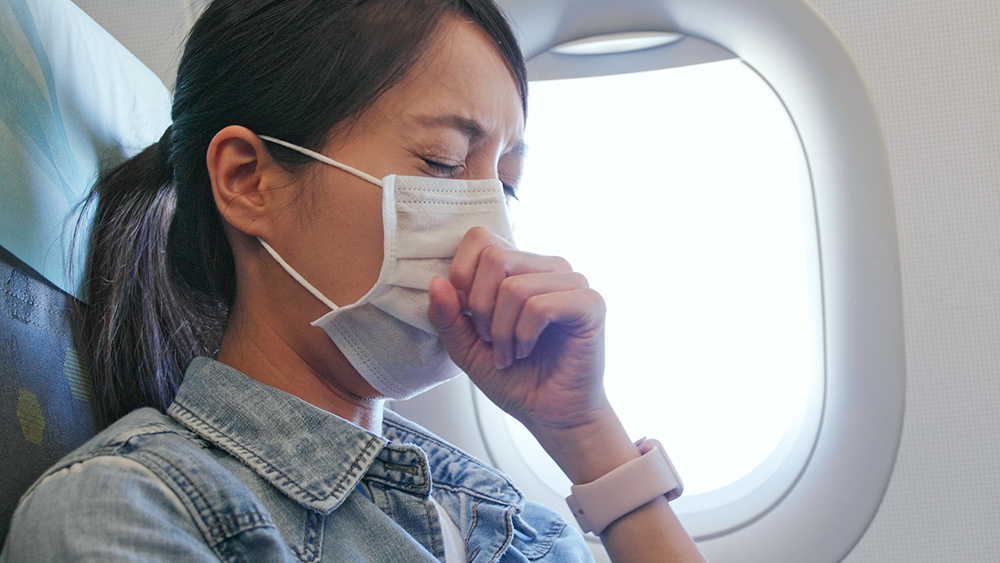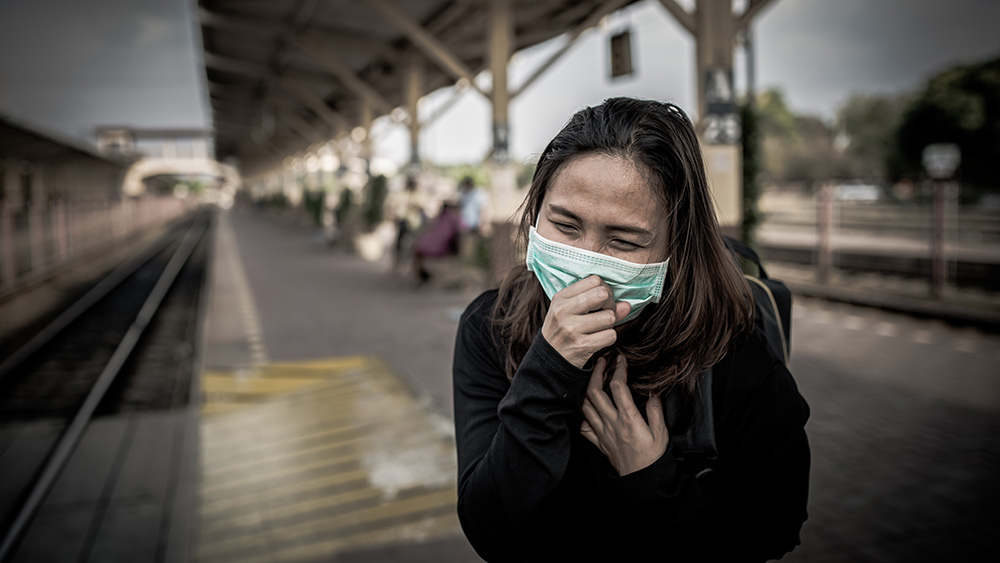Second AstraZeneca trial participant develops rare neurological condition following COVID-19 vaccination
09/22/2020 / By Ethan Huff

It has come to our attention that a second participant in AstraZeneca’s Wuhan coronavirus (COVID-19) vaccine trials has come down with a serious neurological condition that the company claims is not at all related to the volunteer getting vaccinated.
Just like the first participant, who we reported developed severe spinal inflammation, this second one also manifested the exact same disease, which AstraZeneca claims is “rare” and unrelated to its clinical trials.
After facing a barrage of criticism for its failure to disclose the details of its ongoing human trials, AstraZeneca reluctantly released data suggesting that transverse myelitis is a potential negative outcome of getting vaccinated for the Wuhan coronavirus (COVID-19).
The company’s trials, which are being conducted in conjunction with the University of Oxford, were quickly resumed after the first victim was deemed to have had an undiagnosed case of multiple sclerosis. Now, AstraZeneca will have to come up with another excuse for this second victim.
According to the company, which has already administered its experimental Wuhan coronavirus (COVID-19) vaccine to some 18,000 human guinea pigs worldwide, this latest case of transverse myelitis is “unlikely to be associated with the vaccine, or there was insufficient evidence to say for certain that the illnesses were or were not related to the vaccine.”
Since vaccine corporations have already been granted full legal immunity under President Trump’s “Operation Warp Speed” program, AstraZeneca need not worry as this is just another temporary roadblock to the eventual commercial approval of this monkey adenovirus-based jab.
Mainstream media insists vaccine injuries are proof “the science is working”
Unlike Russia’s Sputnik V vaccine for the Wuhan coronavirus (COVID-19), which uses human adenovirus as a vector, AstraZeneca’s jab uses an untested monkey adenovirus formula that supposedly shares a gene with the Wuhan coronavirus (COVID-19).
It is this untested component that could be the culprit in this developing trend of neurological damage stemming from the vaccine. Meanwhile, Russia’s Sputnik V is said to be 100 percent effective, generating antibodies in all 76 participants in early-stage trials, according to Russian media.
Hilariously, the mainstream media outlet Barron’s is insistent that these two identical vaccine injuries serve as proof that “the science is working.”
Because AstraZeneca’s trial is now on hold, Barron’s writer Norman Baylor insists that the U.S. Food and Drug Administration (FDA) is obviously doing its job. Further, he insists, it serves as proof that safety is being taken seriously when it comes to the eventual release of this “warp speed” vaccine.
“We should not be totally surprised when an unexplained adverse event is observed in a clinical study,” Baylor writes. “A clinical hold is an order issued by FDA to the sponsor to delay a proposed clinical investigation or to suspend a continuing investigation.”
In other words, this is merely another hiccup that is nothing for people to worry about. The FDA knows what is best, as does Anthony Fauci, and Americans can trust that those at the highest levels of government are looking out for their best interests.
As for putting an end to the plandemic, however, Dale Fisher, a professor of infectious diseases at the National University of Singapore, says Wuhan coronavirus (COVID-19) vaccines will not work.
Rather than bring a “fairytale” ending to the plandemic, Fisher says that vaccines will only “help,” and that there will be no going back to the way things were before the plandemic for a very, very, very long time.
“The Pharma industry normally buries results like this, always finding a reason to downplay any bad side effects,” wrote one RT commenter. “All the attention focused on these trials will expose the inherent dangers of many vaccines.”
The latest news about the race towards a Wuhan coronavirus (COVID-19) vaccine can be found at Pandemic.news.
Sources for this article include:
Tagged Under: AstraZeneca, CCP, China, China Virus, Chinese Communist Party, Chinese military, Clinical trials, coronavirus, covid-19, failure, Plandemic, side effects, transverse myelitis, University of Oxford, vaccine injury, vaccine wars, vaccines, Wuhan coronavirus



















